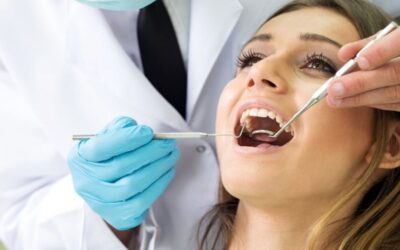Dental emergencies may occur suddenly and can lead to serious complications. For this reason, it is important to be able to identify when you are having a dental emergency. According to its definition, a dental emergency is a trauma to the mouth that may result in bleeding and lacerations to the gums and dislodged or fractured teeth.
If you are unsure if a dental problem is an emergency, the first step is to ask yourself if it hurts. If the answer is yes, it’s an emergency and requires immediate medical attention. Prompt emergency dental care in Edmonton improves the likelihood of saving an injured or damaged tooth.
At our dental clinic near you, we do everything in our power to diagnose and treat the issue as soon as possible. We understand how painful and worrisome it may be for patients to deal with a dental emergency in Edmonton. Providing you with a solution to restore the tooth or teeth and ease dental pain, in a safe and comfortable environment is our number one priority.
Today, we will outline some of the most common dental emergencies seen at our dental clinic in Edmonton.
What Are the Most Common Dental Emergencies?
- Tooth pain
- Dental abscesses
- Swollen gums
- Bleeding gums
- Fractured teeth
- Pain while chewing
- Inflammation that surrounds wisdom teeth
- Accidental tooth trauma
Tooth Pain
Do you know toothaches are one of the most common dental emergencies? In fact, this is the top reason why patients seek emergency dental services in Edmonton. So what should you do if this issue appears out of nowhere? First, try flossing gently between your teeth and gargle with warm water. The pain may be caused by lodged food particles that irritate the gums. If flossing and gargling seem to do the trick, then it is likely that you don’t need emergency dental care.
However, if your toothache persists, you’ll need to schedule an appointment with a dentist in Edmonton. A severe toothache may be a sign of infection, decay or other serious dental issues. Receiving immediate treatment could save you from needing an emergency root canal. For example, if a cavity is addressed early on, all that is required to treat the issue is a simple filling.
Dental Abscesses
A dental abscess is a collection of pus that forms on your gums and may look like a pimple. If you notice a dental abscess, be sure to contact a dentist near you immediately. A dental abscess may be an indication that root canal therapy is required to save an infected tooth. If the cavity deepens to the point of inner chamber penetration, only a root canal can save your tooth from extraction.
Bleeding Swollen Gums
Bloody gums could be a sign of gum disease. Gum disease also referred to as periodontal disease, is caused by untreated plaque on the surface of the gums. Early gum disease (gingivitis) can be treated in its earliest stages; however the same can’t be said once it progresses into periodontal disease. Periodontal disease can result in, painful chewing problems and even tooth loss. If you suspect you have gum disease, don’t wait; schedule a visit with your dentist.
Inflammation Surrounding Wisdom Teeth
Although not all patients require wisdom teeth removal, many of them do. If you experience pain or inflammation around your wisdom teeth, you should see your dentist. Inadequate space in the jaws can cause the wisdom teeth to become impacted (trapped underneath the gums) or come in crooked.
Accidental Tooth Trauma
Patients who participate in contact sports, have a high risk of tooth injury and trauma. Our dental clinic in Edmonton is more than happy to provide you with a custom-made mouth guard to protect your teeth and reduce injury.




